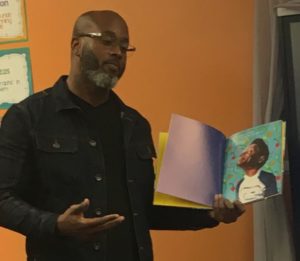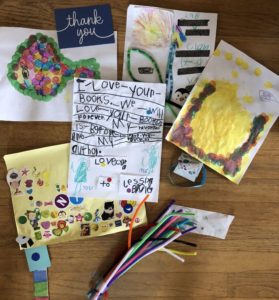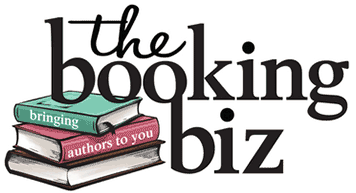What would you do in your classroom or at your event with unlimited funds? Which programs would you expand or introduce? How many additional author visits would you plan to inspire students young and old?

Budgets are always limited, creating boundaries around goals, but there are lots of ways to raise funds and push those boundaries. In our article 35 Ways to Fund Author Visits, we list plenty of great ideas, including one of the most lucrative—grants.
Multiple grants are available for schools and organizations, but there’s also lots of competition. How can you make your application rise to the top to give you the funding you need?
We’ve got 8 tips:
HAVE A PLAN
As much as we’d love for grant judges to give us funds for anything that comes up, that doesn’t happen. Grants require applicants to show a plan for the money they’ll be getting, and they want to make sure that plan is well thought out. Before you submit your application, finalize your plan for the funds you’ll receive. Make sure you can explain it in a way that’s easy to understand.
PLAY MATCH MAKER
Lots of grants are out there, but each has its own specific field where the committee wants to make a difference. Some applicants will apply for any grant, thinking that if they throw enough darts, one will eventually hit a target. But that’s not what judges want. Do your research before you apply for grants. Make a list of the grants that have been setup to make a difference in your field, for example in education or literacy. (We’ve given you a start here.) Pay careful attention to deadlines. If you miss one or can’t get your application top notch in time, put the deadline on your calendar for next year. Also, research the funder. See if there are key words they use that you can also use in your proposal, or a formatting they like that you can mirror.
STICK TO THE FACTS

Grant committees want to know that the funds they’re giving out will get solid results. Numbers and statistics help them see that, so gather data to support your request. Let’s say you’re applying for a grant to boost the number of books in your library. In your grant application, you include the number of books you have now, the number of books the grant will be able to give you, and the number of students in your school who will benefit.
INSPIRE WITH EMOTION
Grant winners are decided by people, and people are moved by emotion. While you want to get across the facts of your project, you’ll get a more receptive response if you put those facts in context by tugging on the heartstrings. For example, what if you want to grow a love of reading in your students and the grant is to pay for an author visit to inspire them? How can you make the grant committee feel why you should get the grant? Think about past author visits you’ve organized that have had an impact on students, or an author visit you’ve heard about from another school. How were the students affected? What kind of positive aspects came out of the visit? Find specifics and make them personal.
ENTERTAIN WITH STORY
When you’re trying to inspire with emotion, the best way to connect to the application judge is through story. Once you’ve gathered your facts and ways to connect them to emotion, use story to express them for maximum benefit. Let’s say you’ve identified a student who could never find a book they liked and struggled in reading. Perhaps they connected with the author in her visit. And after getting their own signed copy of the author’s book with their name in it, the student read the book and searched for more. (Our clients have lots of real-life stories like this.) In your grant application, paint the picture so the judge can imagine it. Write about the smile on the child’s face, their increased confidence when they ask for more books, the way they gently hug the book to their chest knowing it has made a difference in their life.
EMBRACE THE POWER OF 3

Writers know there’s power in the number 3. Human brains are wired to respond powerfully to groupings of threes. This is why we love the story of the three little pigs and three musketeers. Use this power of 3s in your grant application to keep judges engaged. Can you think of 3 details from when the student in your story got her book signed? Do you have 3 types of data that will show your library’s need for more books? Are there 3 author visit benefits that you can list?
MAKE IT READABLE
Grant applications each have their own forms and formats, and you want to follow their instructions to the letter. But when you’re writing blocks of text, make sure it’s readable, easily scrollable and has multiple points of entry. (See how I used the power of 3 there? 😉 ) Long paragraphs filled with long sentences aren’t easily digestible. Break up your paragraphs and vary your sentence lengths for easy readability. When you’re giving statistics, think about bullet lists that judges can glance over quickly. If they like what they see, they’ll read more. To that end, you can also use short subheads to encourage them to focus on the section below it and/or bold words or sentences that highlight the best parts of your proposal.
DON’T STOP AT ONE
Sure, it’s possible that you’ll receive funds from one grant proposal, but the odds are not in your favor. There are simply too many people and organizations looking for funding. This is one reason you want to apply for as many grants as possible that are designed for your field. As we’ve established, judges are people, and when it comes to reading applications, they’re subjective. In the same way that not everyone likes Harry Potter, your funding story will appeal to some more than others. The more grants you apply for, the more likely you are to win. Also, grant amounts are limited, and the grant you receive might not fully cover the program you want to setup. If you can get funding from multiple places, you’re more likely to fulfill your needs.
Want more advice? Try:
- How to Write a Winning Grant Proposal on Inc.
- How to Write an Application That Wins Grants on Dummies, or
- Tips for Writing & Submitting Good Grant Proposals from the Health Resources & Services Administration.
Now you know the secrets, get writing!
And when you’ve secured your grant money and you’re ready to book authors for your event, look no further than our speakers list. Contact us to setup dates.
